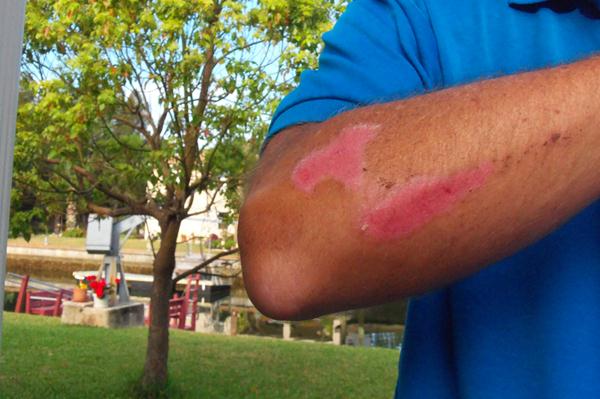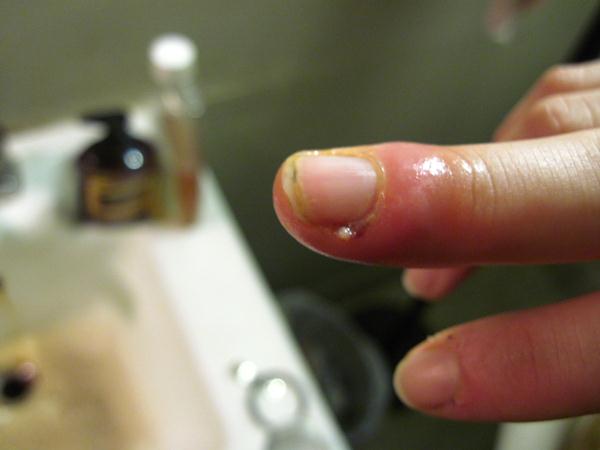Psoriasis is an autoimmune ailment that reveals its self as a skin condition and affects 1-3 % of people. A study revealed that those with the disorder are likely to be at risk of suffering anxiety, having thoughts of suicide and depression. Though it affects your skin, psoriasis starts with the inside of your immune system, affecting the T-cells — a kind of white blood cell.
Psoriasis becomes very active and destroys the immune system hence leading to its attack. The condition has several signs and symptoms which include: stiff and swollen joints, pitted, thickened or ridged nails, dry cracked patches that may bleed and itchy scaly patches of thickened skin.
This ailment has many causes that one should ensure that you avoid at any cost. Here are 10 causes of psoriasis that you should do your best to steer clear of.
1. Alcohol
People with psoriasis tend to drink more alcohol, according to a study in 2010. Unfortunately, alcohol is commonly major trigger for people with psoriasis.

Photo by Abish Falcón / CC by
Another study saw an increase in psoriasis mostly in those who drank heavier beers specifically. The increase was associated with a weekly intake of 2-3 drinks.
2. Food-related triggers
Although there is no definite science for food-related changes, people suffering from psoriasis should try avoiding citrus, fruits, whole milk, fatty foods and gluten — according to the National Psoriasis Foundation.

Photo by reynermedia / CC by
These foods are known to bring about outbreaks in psoriasis so it’s best to cut them out of your diet as best you can.
3. Cold, dry weather
A cold, dry environment may make the symptoms of psoriasis worse. This is because moisture is uncovered from the skin in the freezing cold.
Heating units make the condition worse. You should try and minimize the time spent outside in nature during the coldest months and purchase a good humidifier for your place.
4. Stress
It’s not very shocking to see that psoriasis and stress often go hand in hand. Stress can be the biggest trigger for a psoriasis outbreak.

Photo by Sander van der Wel / CC by
It’s necessary to try and reduce the stress by trying meditation practices and yoga — these have shown great success in reducing stress related to different types of pain and conditions.
5. Excess sun
Too much sun has shown to bring about a major outbreak in people suffering from psoriasis. It’s important to note that while an adequate amount of sun can relieve symptoms in some people, sunburns will most likely cause a flare-up.

Photo by David Joyce / CC by
If you’re finding a little sun does help with your symptoms, keep it to a small amount and don’t go overboard! Always wear sunscreen when you go out into the sun, as well as hats and long sleeves.
6. Smoking
Tobacco is well known to increase the risk of triggering psoriasis and can also make the symptoms worse. Though it’s one of the hardest habits to kick, the more you try and succeed, the better you’ll feel.
It’s no secret that smoking is harmful to anyone in general, so try your best and refrain from this habit if you have psoriasis — your skin will thank you!
7. Obesity
If you are overweight, it can give psoriasis a higher chance of affecting you.
Having a low-calorie diet has been shown to decrease outbreaks of psoriasis, according to a study in JAMA Dermatology in 2013.
8. Scratches, Bites, and Skin injury
If you have a bug bite, scrape or a cut, or you have had any sort of skin injury, new psoriasis lesions would be noticed on the affected area.

Photo by Daniel Oines / CC by
These injuries may occur during your day to day activities such as tending to a garden or shaving. Ensure you take care when performing such activities by using bug spray, wearing long sleeves and gloves.
9. Infections
Infections such as thrush, upper respiratory infections, and strep throat may trigger psoriasis.
In case you realize you are infected with any of the above, it is advisable you visit a doctor for check up.
10. Certain Medications
Some of your medications may alter your body’s immune response hence allowing psoriasis attack. Some of this medication includes steroidal medicines, pills taken to stop malaria and also beta –blockers which are used for high blood pressure. It’s brave to inform your doctor if you have psoriasis in case any of the medication mentioned is prescribed for you.

Photo by David Goehring / CC by
It’s not always possible to avoid the triggering for psoriasis, but you can do a little planning to try and prevent outbreaks. If you are aware of your individual triggers it’s easy to handle them and ensure you lessen the possibility of triggering the condition.






